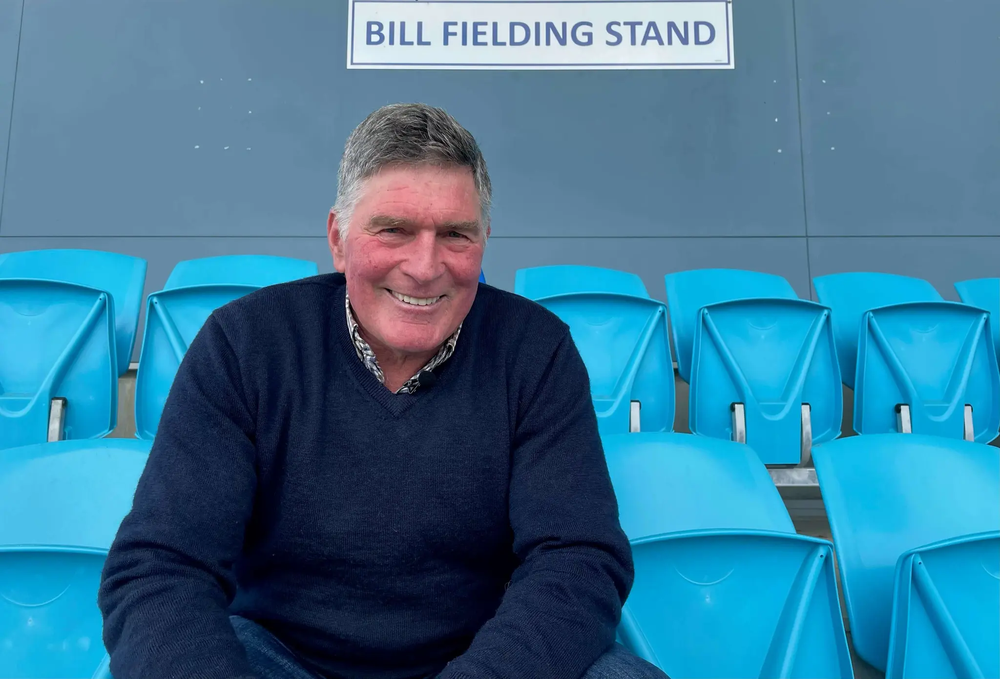Penguin's Dial Park upgrade
13 December 2023
The better facilities, these real performance based facilities, gives them the opportunity to go to their highest level, so it is going to be unbelievable.
It may be modest in size, but the north-west town of Penguin has always punched well above its weight when it comes to producing elite-level footballers. Now the idyllic seaside town is set to become a crucial location that will help underpin Tasmania’s AFL teams.
Penguin’s Dial Park, which boasts AFL standard ovals along with a modern function centre, will undergo further upgrades allowing for AFLW and potentially AFL pre-season games to be played at the venue when Tasmania enters the top tier of men’s and women’s football.
Dual Penguin premiership player Garry Carpenter, who is also president of the North West Football League, is thrilled with the additional allocation of funding announced for Dial Park, as a result of Tasmania’s entry into the AFL.
“To get another 25-million invested, especially here in this little community of Penguin… and we’ll have sitting around it a 40-million dollar stadium… It’s incredible,” he said.
“We have so many kids wanting to play sport now and we are short of grounds…
“The better facilities, these real performance based facilities, gives them the opportunity to go to their highest level, so it is going to be unbelievable.”
Despite its small population – listed as 4132 in the most recent census – Penguin has provided a disproportionate number of players to clubs in the national competition.
Sydney Swan Robbie Fox grew up in Penguin, while Russell Robertson, Michael and Brendon Gale, Justin Plapp, Phil Lade and Tim Evans are just a few of the other locals who also made it to the big time.
The new Chairman of Tasmania’s AFL teams Grant O’Brien is a former Penguin premiership player.
But perhaps the club’s most famous figure is Bill Fielding, who grew up on a farm at South Riana and was driving tractors at the age of eight.
Football offered a brief escape from feeding calves, carting bales and many other physically demanding daily tasks.
“If we weren’t playing football we were at home working so that was our time off,” he said.
“If you’re out of bed at five o’clock in the morning going down the lane to get the cows and it’s pouring with rain, it just toughens you up…
“Nothing we liked more than a wet day at the footy.”
Fielding played for Penguin during a golden era in the late 1970’s and 80’s when the club won three premierships.
He’s amazed by the level of investment in the town he proudly represented in a record 432 games.
“It’s brilliant for the players, absolutely brilliant surface, the area for the spectators is not quite as good but they are working on changing that so things are looking really good,” Fielding said.
“It was talked about for 20 years before we got up here so we couldn’t even see that happening let alone spending all that money on it.”
An attacking and hard-nosed defender, all of Fielding’s home games were played on the old Penguin Recreation Ground in the centre of town, just a couple of drop punts from Bass Strait.
While rapt with Penguin’s new state-of-the-art facility – positioned up the hill near the school, athletics track and golf club – Fielding still speaks fondly of its much smaller predecessor.
“It was a bit like the Queenstown ground for us, it was a good home-ground advantage.”
“Cramped conditions, you could control things a little bit more than you can on these big open grounds,” he said with a laugh.
Carpenter believes the entire north west coast will benefit from the upgrades to Dial Park, which pave the way for major events that will bring an influx of tourists and boost the local economy.
“Your sand, your beach and your football and in five minutes you’re in the bush so it really is an incredible place to live and work and play,” he said.
